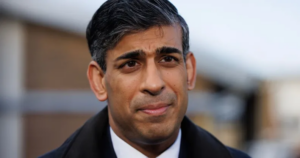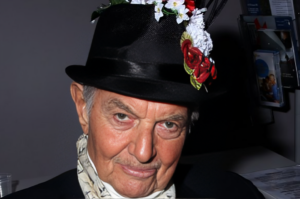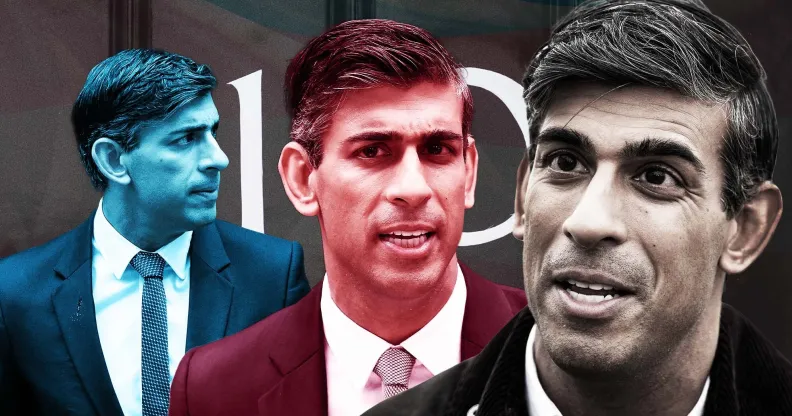
Manchester buzzed with anticipation as Prime Minister Rishi Sunak took the stage to address the Conservative Party conference. Party leaders often view this moment as a chance to instill confidence and demonstrate their competence, especially when the party is lagging in the polls. Sunak’s speech was seen as an opportunity to reverse his party’s fortunes.
Despite the many issues he could have addressed to regain support, Sunak chose to tackle a contentious and divisive topic: trans rights. He asserted, “A man is a man, and a woman is a woman, that’s just common sense,” to the enthusiastic applause of his audience. He claimed that the public was being “bullied” into accepting that “people can be any sex they want to be.”
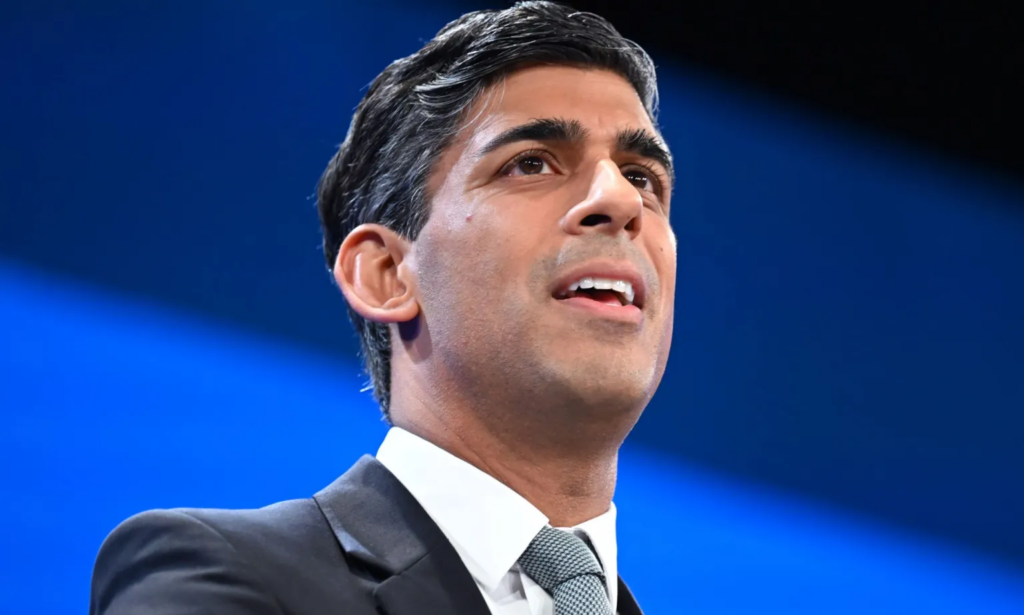
This stance was disheartening for the UK’s transgender community, but it was not unexpected. Throughout his year in office, Sunak made it clear that he was willing to exploit anti-LGBTQ+ sentiments to bolster his support.
In his early days as Prime Minister, Sunak wasted no time in pursuing the rollback of hard-fought LGBTQ+ rights and protections. Reports emerged that he planned to review the Equality Act to emphasize biological sex over gender identity. His appointment of Kemi Badenoch as the women and equalities minister, known for her anti-trans views, signaled his stance.
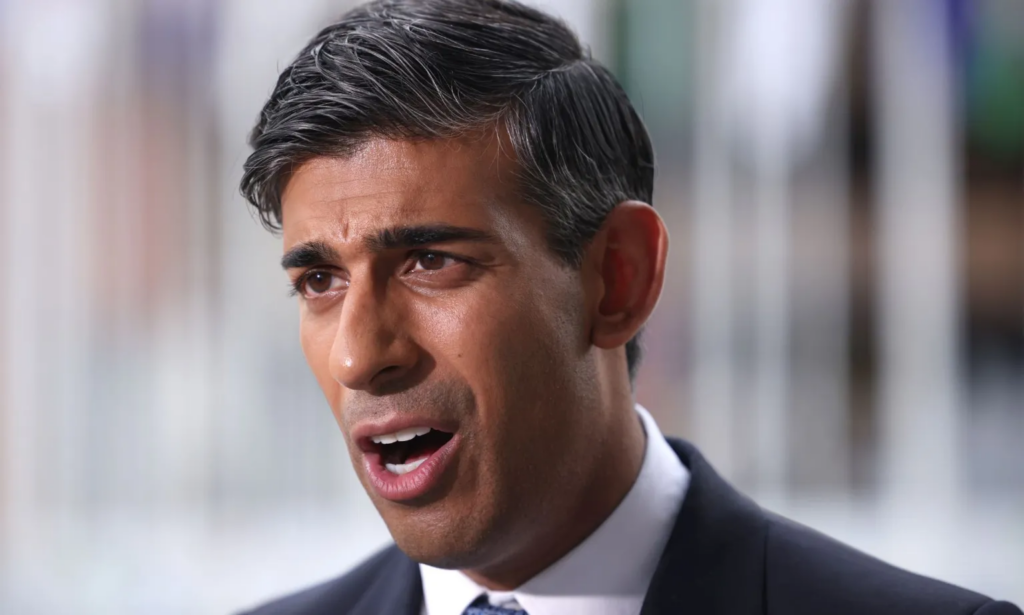
Subsequently, Sunak faced criticism for not wearing a World AIDS Day ribbon and gave an unconvincing excuse. In December 2022, his government opposed the Scottish Gender Recognition Reform (GRR) bill, sparking controversy. Sunak’s administration also struggled to enact a ban on conversion therapy, flip-flopping on the issue, frustrating LGBTQ+ activists.
Furthermore, Sunak’s government considered banning trans children from participating in school sports and even turned bathroom use into a contentious issue. They proposed outing trans youth to their parents and banning social transition in schools, causing outrage.
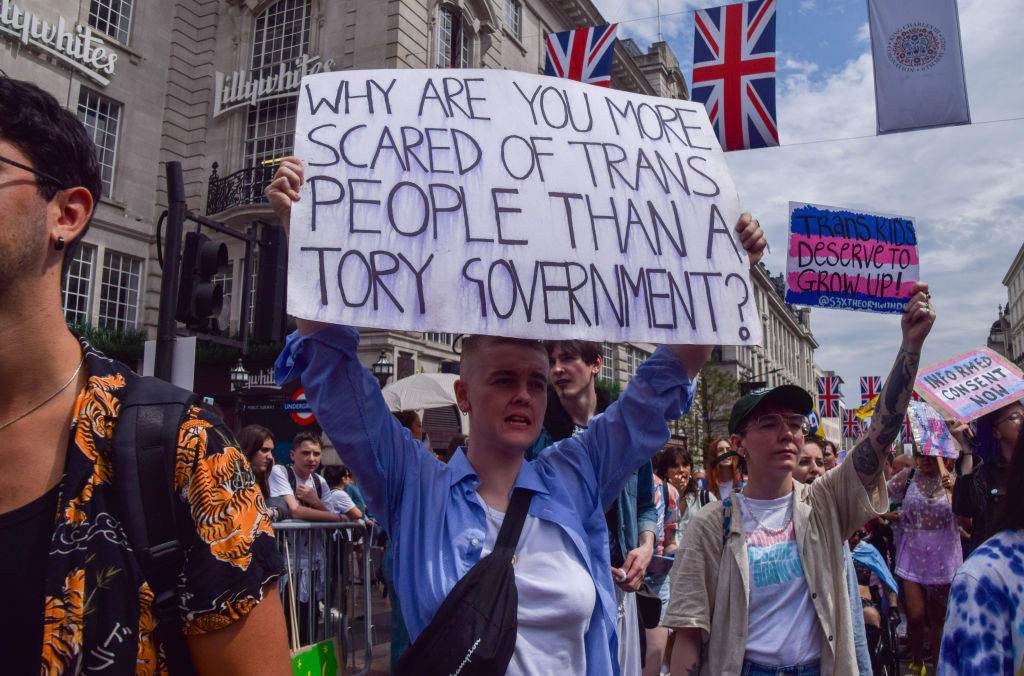
In addition to policy changes, Sunak resorted to anti-trans rhetoric to score political points. He made divisive statements about the definition of womanhood and gender identity, using these issues to differentiate himself from his political opponents, such as Keir Starmer. He supported MPs who campaigned against trans rights and, in one of his most egregious missteps, was caught on video mocking trans women.
It’s challenging to definitively label Sunak as the worst Prime Minister for LGBTQ+ rights, as comparisons with historical leaders are complicated due to changing public perceptions. However, when measured against recent Prime Ministers, who have had mixed records on LGBTQ+ rights, Sunak’s approach is concerning.
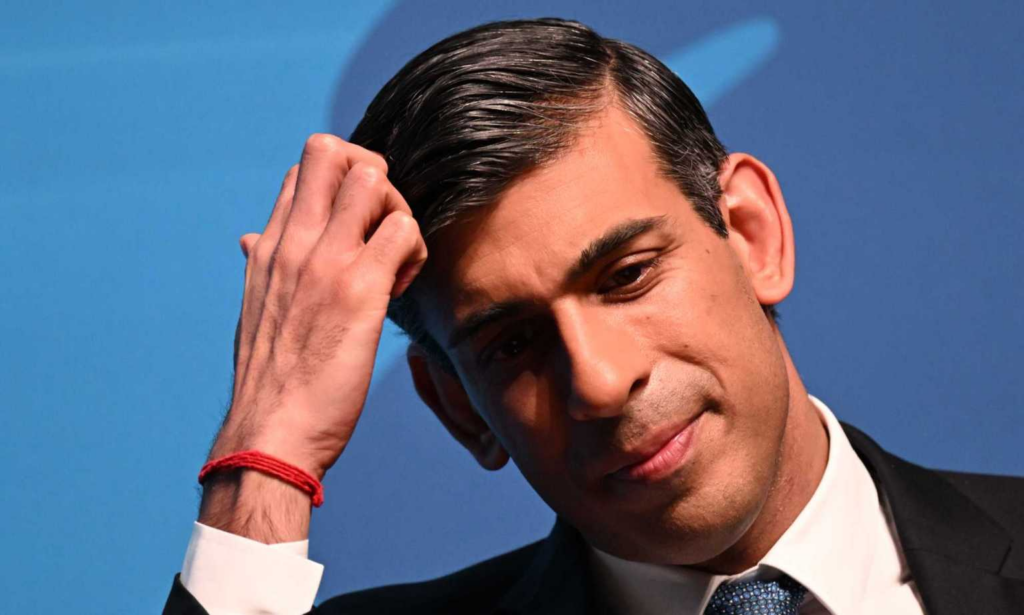
David Cameron oversaw the passage of same-sex marriage, while Theresa May and Boris Johnson had controversial positions on LGBTQ+ rights. Liz Truss, during her brief tenure, also engaged in divisive debates about trans rights.
The rise of anti-trans sentiments and policies within the UK’s political class is evident, regardless of the relative performance of successive Prime Ministers. What is clear is that a shift in the rhetoric surrounding LGBTQ+ issues is urgently needed, emphasizing the humanity of LGBTQ+ individuals, particularly those who are transgender. Currently, this aspiration feels distant.
Author












